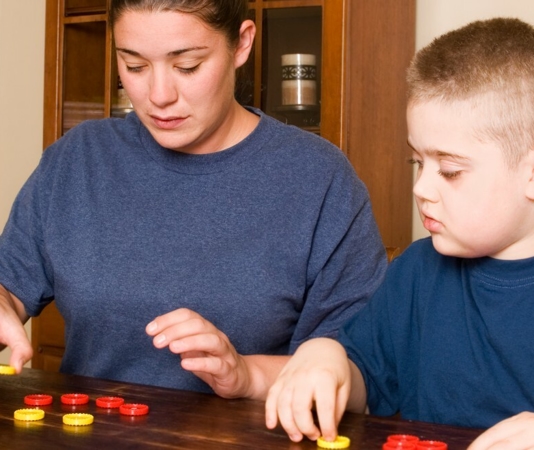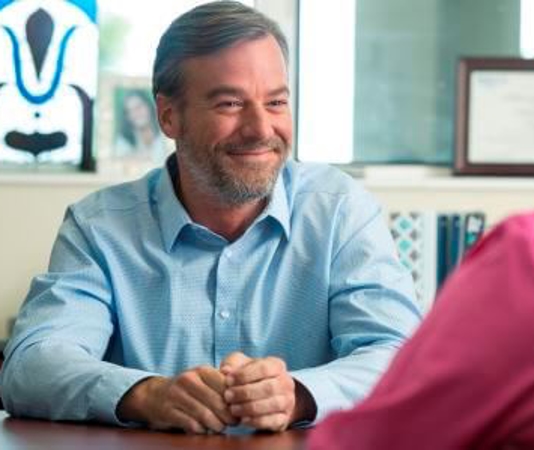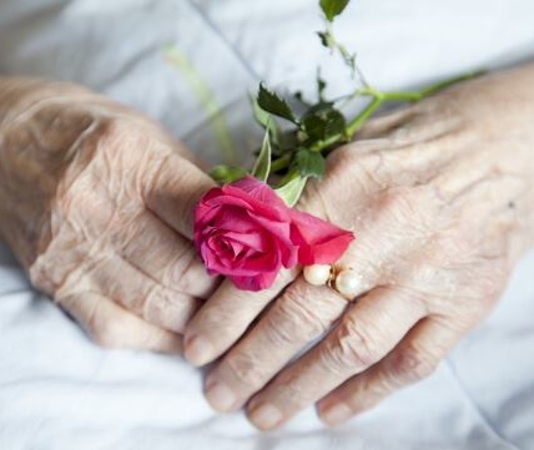Lisa Shultz, 55, found herself being a primary family caregiver for her father near the end of his life. She has written a book, A Chance to Say Goodbye: Reflections on Losing a Parent, about the experience for others who may find themselves in a similar situation. We asked her a few questions about being a caregiver.
Q: How long did you care for your dad?
A: My dad passed away in 2015 at the age of 89. In his last three years, he required significant care and management of his affairs.
Q: What support did you get for yourself while being a family caregiver? Did siblings help or did you hire outside help?
A: My sister and my dad’s girlfriend helped in the care for my dad. My dad’s girlfriend did not live with him but was the closest in proximity. She saw him the most often and my sister and I traded off visiting him multiple days of each week. Both my sister and I had a several hours drive, so we were grateful for someone nearby.
Even with the three of us working together, we couldn’t handle all the needs and the stress of his ever-increasing disabilities. My dad became both physically weak and also had some dementia. He would not consider leaving his beloved home and became angry at other ideas for additional help. My dad needed help with almost every part of daily living in his last three years: grocery shopping, meal preparation, laundry, house and bookkeeping, medication pick up from the pharmacy and organizing in his pill box, hygiene and dressing and so forth. He really needed around the clock care at a facility but he would not consider leaving his home.
Everything changed in a blink of an eye. He fell in his kitchen and broke his hip. Because of the necessity of going to the hospital, he finally left his home. He went to the hospital and then to a rehabilitation facility after his hip replacement surgery.
Q: What advice do you have for others who are in a family caregiving role or how might they prepare for this caregiving possibility?
A: Grab windows of opportunity to plan in advance of decline. The ER is not the place to begin talking about choices. Discuss options of care while parent is doing well physically and mentally. If parents were not able to care for themselves, what alternatives would they consider? Tour facilities and talk with home healthcare agencies. Explore a range of care options. Discuss and get clear on the options that are most preferred.
Moving before a crisis might be worth considering. Downsizing a home or a move to an independent living facility that offers assisted living if the need arises can be a blessing to all involved.
If one is already in a caregiving role, ask for help. There are a plethora of agencies that provide caregiver relief or augment care with visiting nurses or therapists. Friends and relatives may not know how to best help unless you ask. Ideas that helped me: having meals brought in, taking me out to dinner and staying with my dad for a few hours so I could leave and get some things done.
I was careful to schedule self-care: massage, chiropractic adjustments and acupuncture treatments. I exercised and walked a lot. I found a positive stress outlet-dance lessons!
Wherever you find yourself, gather resources: neighborhood networks, volunteers, home health agencies and friends. Look into facilities before you need them in a panic. The health decline of caregivers is a common and serious situation. Do all you can to stay healthy!
Q: Were there specific challenges to being a daughter caring for a father? How did you handle them?
A: My dad’s fierce pride made the situation difficult for me. His growing dependency was hard on his ego. He felt he was doing better than the reality of the situation. He was unwilling to talk about options of care, the reality of his condition and his mortality. He didn’t understand the toll his care was taking on us. When dementia set in, he had times of irrational thought and behavior. That cognitive change was heartbreaking for me to witness. I was in a constant state of worry, anxiety, sadness and despair. I gradually moved to a state of acceptance and did the best I could to lovingly care for him in the ways he preferred.
Q: What did you like most about this chance to help your dad?
A: Despite issues of dementia and personality, my dad and I had some great talks together. His memory of some past events and history was still sharp. It was nice to ask him questions about old family photos. I wrote down names on the back of them and asked him questions about the times and the people in the pictures. We also talked about philosophy. Even if I didn’t agree with all of his strong opinions, it was educational to understand his perspective and the reason behind them.
We often sat at his dining room window and looked at his great view together. My book cover shows that view! I grew to appreciate the site of Pike’s Peak. We could see an open meadow and watch wildlife. My dad loved seeing geese come to the pond within view of his window. He adored his hummingbirds and other birds that came to his feeders. He saved and set out scraps for raccoons that visited his porch at night. He watched the changing colors of the sky, clouds and seasons. Sharing those scenes with him was special to me.
My dad loved living in the country and embraced the wide-open vistas. He sold his ranch to Douglas County Open Space to ensure that it would never be carved into small pieces of a housing development of ever expanding Denver. His home, Prairie Canyon Ranch, is indeed preserved. The public can come to it, be in nature and take in all the beauty of the area.
Q: Why did you write a book about your experiences? What was your intention for it?
A: I wrote A Chance to Say Goodbye: Reflections on Losing a Parent to help others who might find themselves in a management or caregiving role now or in the future. I was unprepared and overwhelmed by the role I was thrust into when my dad’s health declined. If I had done some reading, researching, discussing and planning ahead of the actual need, it may have eased some of the anxiety and stress I experienced. Furthermore, gathering more support by asking or employing others before times got tough may have provided more quality time for my dad and kept my health and sanity in better shape. By sharing my story, I hoped to honor my dad. I also hoped to inspire others to take positive, pro-active steps now to better navigate the decline and end of life of a loved one.
Q: What are you doing and writing now?
A: My mom fell last August, breaking her hip. Just two years after my dad’s fall, broken hip and death, I have once again found myself back in the caregiving and managing role of another parent. As I support and assist her, I also research and record all I learn. Perhaps another book will spring forth in the future about her story. There is quite a lot of difference in the two stories!
I am also dedicated to reducing the quantity of my possessions. After clearing out two separate homes full of a lifetime of things, I realized that I needed to clear anything that I didn’t use or love. The process of clearing my parent’s homes and my own seems destined to spawn a book about those experiences too.
Find out more about Lisa at http://lisajshultz.com.





